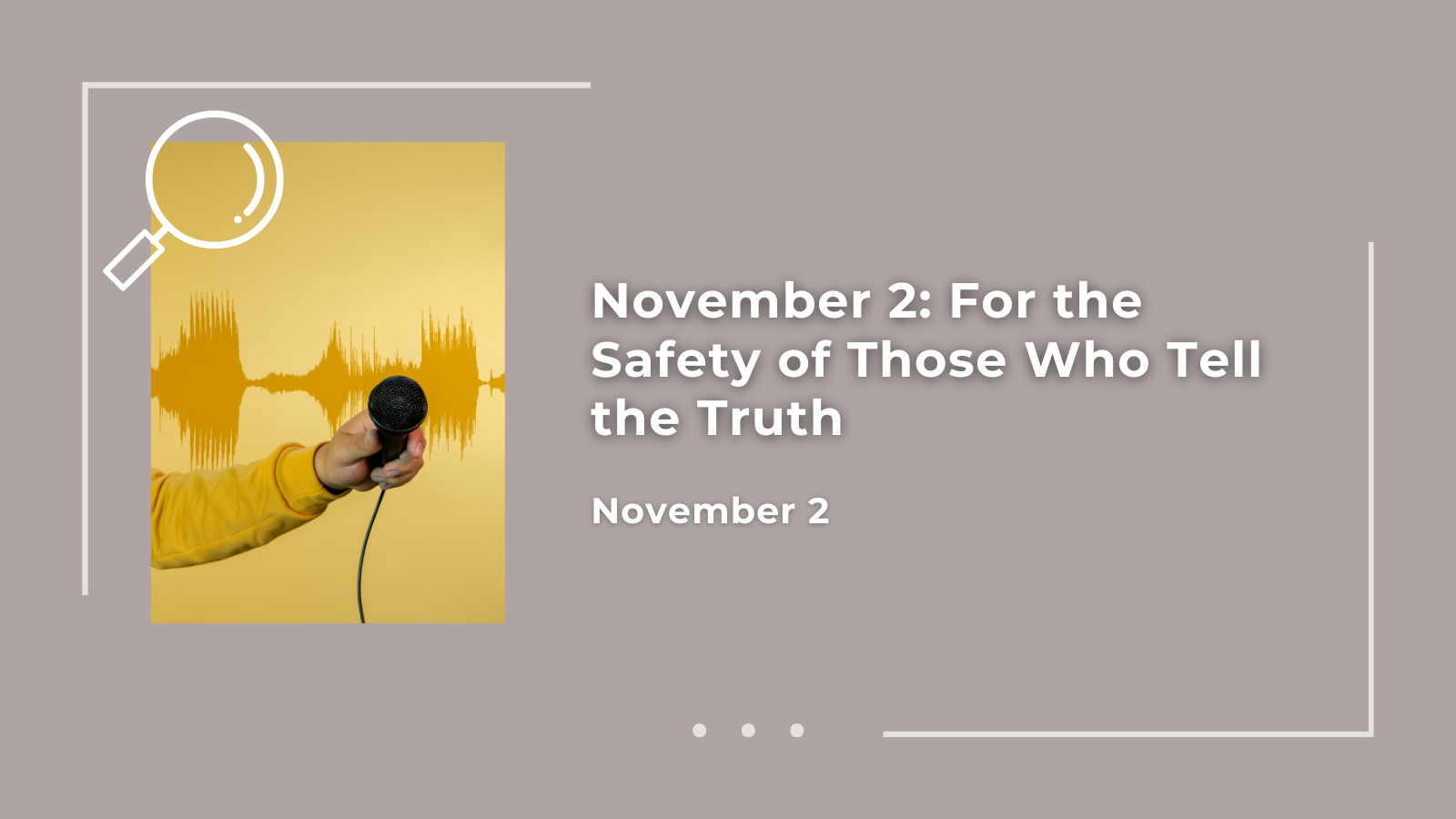
November 2: For the Safety of Those Who Tell the Truth
Ending impunity for crimes against journalists remains one of the greatest and most urgent challenges of our time. Every November 2, the world commemorates the International Day to End Impunity for Crimes against Journalists, proclaimed by the United Nations General Assembly in 2013 through Resolution A/RES/68/163, in memory of two French journalists killed in Mali that same year. This date seeks to reaffirm the global commitment to freedom of expression, the safety of media professionals and the right of all citizens to receive truthful information.
Since 1993, more than 1,700 journalists have been killed while carrying out their work, according to the Observatory of Killed Journalists launched by UNESCO. The most alarming is that 85% of these crimes remain unresolved, a figure that has barely decreased in the past decade. This impunity not only denies victims and families justice but also affects society by fuelling fear, self-censorship and disinformation.
In its 2024 Report on the Safety of Journalists and the Issue of Impunity, the Director-General of UNESCO warned that more than half of the deadly attacks have recently occurred in conflict zones or in humanitarian crises. The wars in Ukraine, Sudan and Gaza have highlighted the extreme vulnerability of journalists covering armed conflicts. Since October 2023, the escalation of violence in Gaza has led to the deaths of more than one hundred journalists and media workers, according to the International Federation of Journalists (IFJ) and the Committee to Protect Journalists (CPJ), making it one of the deadliest episodes for the press in recent times. The UN and UNESCO have denounced attacks on media professionals in the Gaza Strip as constituting a grave violation of international humanitarian law and a direct threat to freedom of information.
Women journalists face specific risks. According to UNESCO’s study, The Chilling: Global Trends in Online Violence Against Women Journalists (2022), 73% of respondents reported receiving threats, insults, or online harassment related to their work. These aggressions, often sexual or misogynistic in nature, aim to silence critical voices and restrict women’s participation in the public information sphere.
As the UN warns, impunity “emboldens perpetrators and silences victims.” When crimes against journalists are neither investigated nor punished, the message sent is that attacking those who inform carries no consequences. UNESCO cautions that this phenomenon “harms society by concealing serious human rights abuses, corruption and criminality.” In response, the UN launched in 2012 the UN Plan of Action on the Safety of Journalists and the Issue of Impunity, the first coordinated framework within the international system to protect journalists and ensure justice. Nonetheless, significant challenges remain. New technologies have expanded the reach of digital violence, and in many countries, judicial systems lack independence or sufficient resources to investigate cases effectively.
Latin America is the most dangerous region in the world for journalism. In countries such as Mexico, Honduras and Colombia, journalists investigating corruption, organized crime or abuses by security forces are subject to threats, attacks and killings. In October 2021, the Inter-American Court of Human Rights issued a landmark judgment in Jineth Bedoya Lima v. Colombia, holding the Colombian State responsible for the journalist’s torture, kidnapping and sexual assault. This decision set an important precedent by establishing that States must adopt preventive and protective measures specific to gender-based violence against women journalists and ensure effective investigations.
Journalists are the eyes and ears of society. Their work sustains transparency and accountability. This November 2, the United Nations and UNESCO call on governments, media outlets and citizens to break the cycle of impunity and defend press freedom.
The fight against impunity is not only a cause for journalists but a collective responsibility. Protecting the truth means protecting justice and human dignity.
Marina de Leiva Álvarez, collaborator at FIBGAR.



